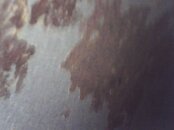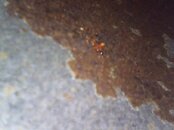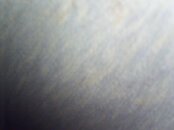Waterbottle
Registered
Hello,
I opened my scuba cylinders (sometimes air tastes like swamp) and I found couple very rusty spot from both bottles. Is this dangerous and what I could do for the rust? Cylinders stamped(for next 10years) one year ago and are 20 years old. I have only filled these in diving shop. How fast rust comes and why if I have used shop diving air? Here is a couple photos. Thank you. (Sorry bad english )
)
I opened my scuba cylinders (sometimes air tastes like swamp) and I found couple very rusty spot from both bottles. Is this dangerous and what I could do for the rust? Cylinders stamped(for next 10years) one year ago and are 20 years old. I have only filled these in diving shop. How fast rust comes and why if I have used shop diving air? Here is a couple photos. Thank you. (Sorry bad english







